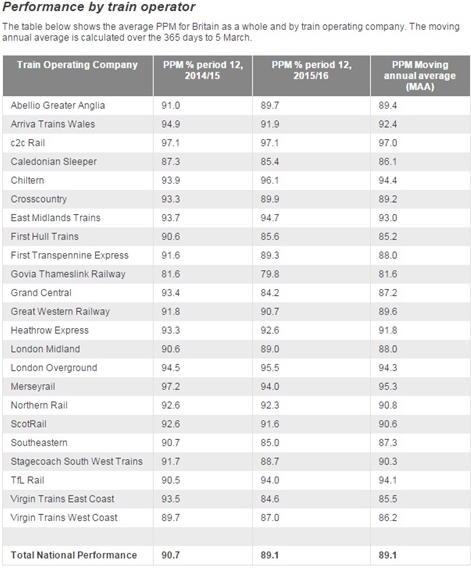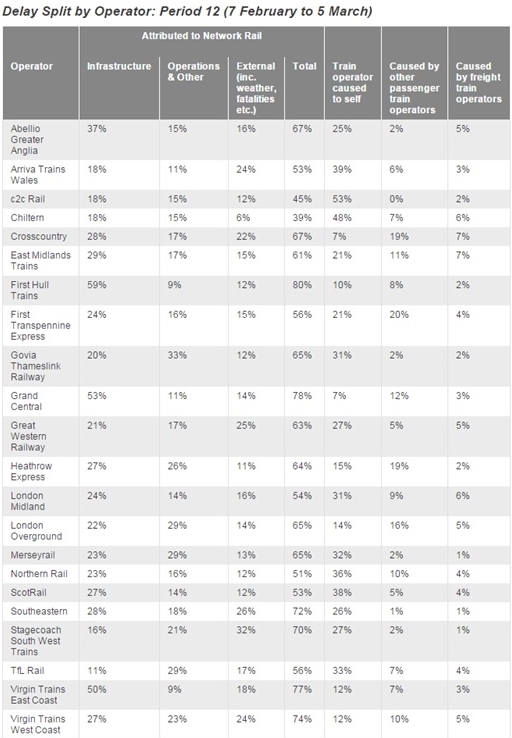16.03.16
Virgin East Coast had biggest performance decrease in period 12
Virgin East Coast had the steepest performance decline compared to last year in the past month, latest Network Rail figures show.
The figures give Virgin Trains East Coast a public performance measure (PPM) of 84.6% for period 12 in 2015-16, an 8.9 percentage point drop from 93.5% at the same time last year. Grand Central had an 8.2% drop from 93.4% in 2014-15 to 84.2% in 2015-16.
Other notable falls included Southeastern which had an 85% PPM, a 5.7% drop from last year, and First Hull had an 85.6% PPM, a 5% drop.
Compared to the east coast route, Virgin Trains West Coast had a shorter decline from a higher starting point, with its PPM changing from 89.7% in period 12 last year to 87% in 2015-16.

The figures are similar to last month’s, but the decreases are less steep.
In period 11, First Hull had a 12% decrease from the same time last year, followed by Southeastern (9.6%), Virgin East Coast (8.1%) and Grand Central (7.7%).
First Hull was the company facing the greatest amount of delays attributable to Network Rail instead of the TOC. Problems included infrastructure faults and severe weather. This occurred in 80% of cases, compared to 77% for Virgin East Coast, 78% for Grand Central and 72% for Southeastern.

The statistics also show a slight improvement for London trains, with PPM increases for TfL Rail (3.5%) and London Overground (1%).
The National Infrastructure Commission said in its most recent report that Crossrail 2 must be taken forward as a priority to meet the pressures of London’s increasing population on its railways.
Out of the 23 TOCs featured, the only ones without a PPM decline are Chiltern (2.2% increase) and c2c rail (static at 97.1%). However, these had the highest percentage of delays self-inflicted by the TOC (53% for c2c and 48% for Chiltern). Grand Central had 7%, First Hull had 10%, Virgin East Coast and West Coast had 12% each and Southeastern had 26%.
A Virgin Trains spokesperson said: “The majority of delays to Virgin Trains’ services on the East Coast Mainline are caused by issues that are the responsibility of Network Rail and are out of our control.
“Over this latest period, we were only responsible for 12% of the delays to our services which is one of the best results in the industry. We are working hard to ensure that Network Rail improves performance for our customers.”
Virgin recently announced plans to introduce 42 new services a week from Edinburgh to London.
The TOC with the highest percentage of journeys ending in cancellation or failure was First TransPennine Express at 5.7%, followed by Govia Thameslink (5.5%), Virgin East Coast (5.3%) and Southeastern (4.8%).
A survey of passengers from consumer group Which? last month found that the worst TOCs for delays were Arriva Trains Wales, Thameslink and Great Northern, Great Western Railways and Southern.